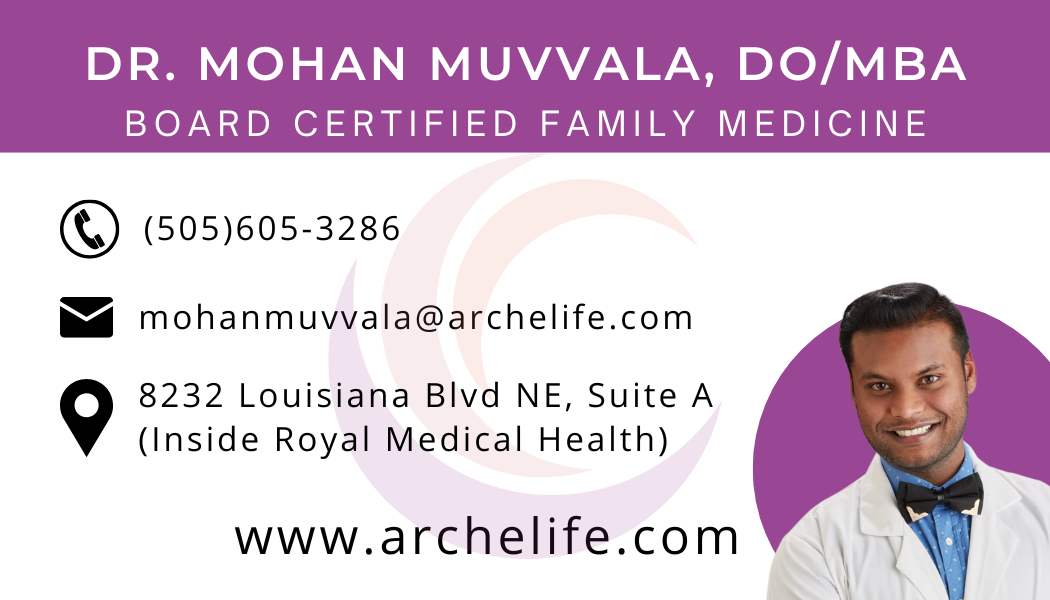It's Not Too Late! Your Essential Guide to Upper Respiratory Season Protection

November 2025 Update
If you haven't gotten your vaccines yet, don't worry, now is actually an excellent time to protect yourself and your family. I want you to know that it's definitely not too late. Here's your guide to prepare for the season.
Pro Tip: Telehealth can be a convenient option if you're feeling too unwell to travel or want to avoid exposing others in our waiting room.
Why November Is Still a Great Time to Get Vaccinated
Flu season typically peaks between December and February, with activity continuing through May. Since it takes about 2 weeks to develop full immunity after vaccination, getting your shot now means you'll be protected right before the peak season hits.
Recent reports show that flu activity is just beginning to ramp up, so there's still plenty of time to build your immunity before cases surge.
Essential Vaccines for the 2025-2026 Season
Influenza (Flu) Vaccine - GET IT NOW!
Who Should Get It: Everyone 6 months and older, with rare exceptions
Time to Effectiveness: Full protection develops approximately 2 weeks after vaccination, which means if you get it this week, you'll be protected by early December, right before the holiday gatherings and peak flu season.
Duration of Protection: Immunity lasts approximately 6-8 months, covering you through the entire season (through May 2026)
What's Different This Year: All flu vaccines for the 2025-2026 season are trivalent (three-component) vaccines designed to protect against the most prevalent strains.
Recent News: A new flu variant (H3N2 subclade K) is circulating, making vaccination even more important this season
COVID-19 Vaccine (2025-2026 Formula)
Who Should Get It: The CDC recommends an individualized approach. Most adults ages 18 and older should consider the updated 2025-2026 vaccine.
Time to Effectiveness: It takes about 2 weeks to build immunity after vaccination
Good News: You can receive your flu and COVID vaccines at the same appointment! No need to make multiple trips.
What's New: The 2025-2026 formula is a monovalent JN.1-lineage-based vaccine, updated to match currently circulating variants.
Recent Infection? If you've had COVID-19 within the past 3 months, you may want to wait to optimize your immune response.
RSV (Respiratory Syncytial Virus) Vaccine
Who Should Get It:
All adults ages 75 and older
Adults ages 50-74 who are at increased risk for severe RSV disease, including those with:
Chronic heart or lung disease
Diabetes
Weakened immune system
Nursing home residents
Great News: RSV vaccines are now fully covered by Medicare with no out-of-pocket costs!
Time to Effectiveness: Approximately 2 weeks for full protection
How Often? Currently, CDC recommends a single dose. Recent studies show one shot provides effective protection against hospitalization for at least two RSV seasons.
Available Vaccines: GSK's Arexvy, Pfizer's Abrysvo, and Moderna's mRESVIA
CRITICAL: What to Avoid Around Vaccination Time
NSAIDs and Your Vaccine Response
Recent research from the University of Rochester and other institutions has shown that common pain relievers like ibuprofen (Advil, Motrin), naproxen (Aleve), and aspirin may reduce your body's immune response to vaccines.
Recommendation:
Avoid NSAIDs for 1 day BEFORE vaccination
Avoid NSAIDs for up to 1 week AFTER vaccination (especially critical for the first 24-48 hours)
Why Does This Matter?
NSAIDs can dampen the inflammatory response that's essential for building strong immunity. They may reduce antibody production, potentially weakening the protection your vaccine provides.
What About Acetaminophen (Tylenol)? While acetaminophen may have some effect on immune response, current evidence suggests it has less impact than NSAIDs. However:
Try to avoid taking it BEFORE vaccination (don't premedicate!)
If you develop uncomfortable side effects AFTER vaccination, acetaminophen is acceptable for symptom relief
Bottom Line: Don't premedicate "just in case!" Let your body mount its natural immune response. Mild symptoms after vaccination (low-grade fever, body aches, fatigue) are actually signs your immune system is working and typically resolve within 1-2 days.
Stock Your Medicine Cabinet NOW
Don't wait until you're sick! Having these essentials on hand means you can start treating symptoms immediately:
For Fever and Body Aches
Acetaminophen (Tylenol) - Reduces fever and pain, generally safe for most people
Ibuprofen (Advil, Motrin) - Anti-inflammatory, excellent for body aches (remember to avoid around vaccination time)
For Nasal Congestion
Pseudoephedrine (Sudafed) - Most effective oral decongestant (ask pharmacist, kept behind counter)
Phenylephrine nasal spray (Neo-Synephrine) - Direct relief, but limit to 3 days maximum to avoid rebound congestion
Saline nasal spray or rinses (NeilMed, Simply Saline) - Safe for daily use, helps thin mucus naturally
For Cough
Dextromethorphan (Robitussin DM, Delsym) - Suppresses dry, unproductive coughs
Guaifenesin (Mucinex) - Expectorant that thins mucus for productive coughs
Cough drops and throat lozenges - Soothe throat irritation and suppress cough reflex
Honey - Natural cough suppressant (for ages 1 year and older)
For Runny Nose, Sneezing, Watery Eyes
Diphenhydramine (Benadryl) - Traditional antihistamine (causes drowsiness - good for nighttime)
Loratadine (Claritin) or Cetirizine (Zyrtec) - Non-drowsy antihistamines for daytime use
Combination Products for Convenience
Daytime formulas (Mucinex DM, DayQuil Cold & Flu) - Multi-symptom relief without drowsiness
Nighttime formulas (NyQuil, ZzzQuil) - Include sleep aids to help you rest while sick
Home Essentials
✓ Digital thermometer
✓ Humidifier or vaporizer
✓ Electrolyte drinks (Pedialyte, Gatorade, Liquid I.V.)
✓ Chicken soup or broth, Veg
✓ Tissues with lotion (Puffs Plus)
✓ Hand sanitizer (60%+ alcohol)
✓ Disinfecting wipes
Simple But Powerful Prevention Strategies
Hand Hygiene: Wash hands frequently with soap and water for at least 20 seconds, especially after being in public
Stay Home When Sick: Protect others by avoiding work, school, and gatherings when symptomatic
Adequate Sleep: 7-9 hours nightly supports optimal immune function
Hydration: Aim for 8+ glasses of water daily
Nutrition: Focus on fruits, vegetables, lean proteins, and whole grains
Manage Chronic Conditions: Keep diabetes, heart disease, and lung conditions well-controlled
Ventilation: Open windows when weather permits or use air purifiers
Call Me Right Away If You Experience:
Respiratory Symptoms:
Difficulty breathing or shortness of breath at rest
Persistent chest pain or pressure
Severe sinus pain or pressure that doesn't improve with OTC medications
Cough producing thick, discolored (green/yellow), or bloody mucus
Fever Concerns:
Fever above 103°F in adults
Fever lasting more than 3-4 days despite treatment
Fever that goes away and then returns (can signal secondary infection)
Worsening or Persistent Symptoms:
Cold or flu symptoms lasting more than 10 days without improvement
Symptoms that initially improve then suddenly get worse
Severe fatigue or weakness that interferes with daily activities
Persistent vomiting or inability to keep fluids down leading to dehydration
For High-Risk Patients: If you have any of the following conditions and develop flu-like symptoms, contact me within the first 24-48 hours:
Age 65 or older with
Chronic lung disease (asthma, COPD, emphysema)
Heart disease or history of heart failure
Diabetes
Weakened immune system (cancer treatment, immunosuppressive medications, HIV)
Chronic kidney or liver disease
Pregnancy
Obesity (BMI ≥40)
Why Early Contact Matters: Antiviral medications like Tamiflu work best when started within 48 hours of symptom onset, so don't wait to reach out!
When to Go to Urgent Care or Emergency Department:
I want to see you for most respiratory illnesses, but please go directly to urgent care or the ER if you have:
Severe difficulty breathing or gasping for air
Chest pain with exertion or at rest
Confusion, extreme drowsiness, or difficulty waking
Bluish lips or face
Severe dehydration (no urination for 12+ hours, extreme dizziness)
High fever with stiff neck or severe headache
Take Action This Week! Don't put it off any longer!
✅ Schedule your flu and COVID-19 vaccines THIS WEEK - You'll be protected by early December
✅ If you're 50+, ask about the RSV vaccine at your appointment
✅ Stock your medicine cabinet TODAY - Don't wait until stores are sold out or you're too sick to shop
✅ Review your current medications with us to ensure there are no interactions
✅ Make a plan for who can help if you get sick (grocery shopping, childcare, etc.)
The Bottom Line: We're heading into the busiest part of upper respiratory season, with holiday gatherings, winter weather, and peak flu activity just weeks away. Getting vaccinated now and preparing your home with essential supplies gives you the best protection for the months ahead.
Remember: Vaccination + preparation + good hygiene = your best defense against this season's respiratory illnesses.
As always feel free to contact me if you have any questions or concerns.
Thank you for trusting me with your care!

